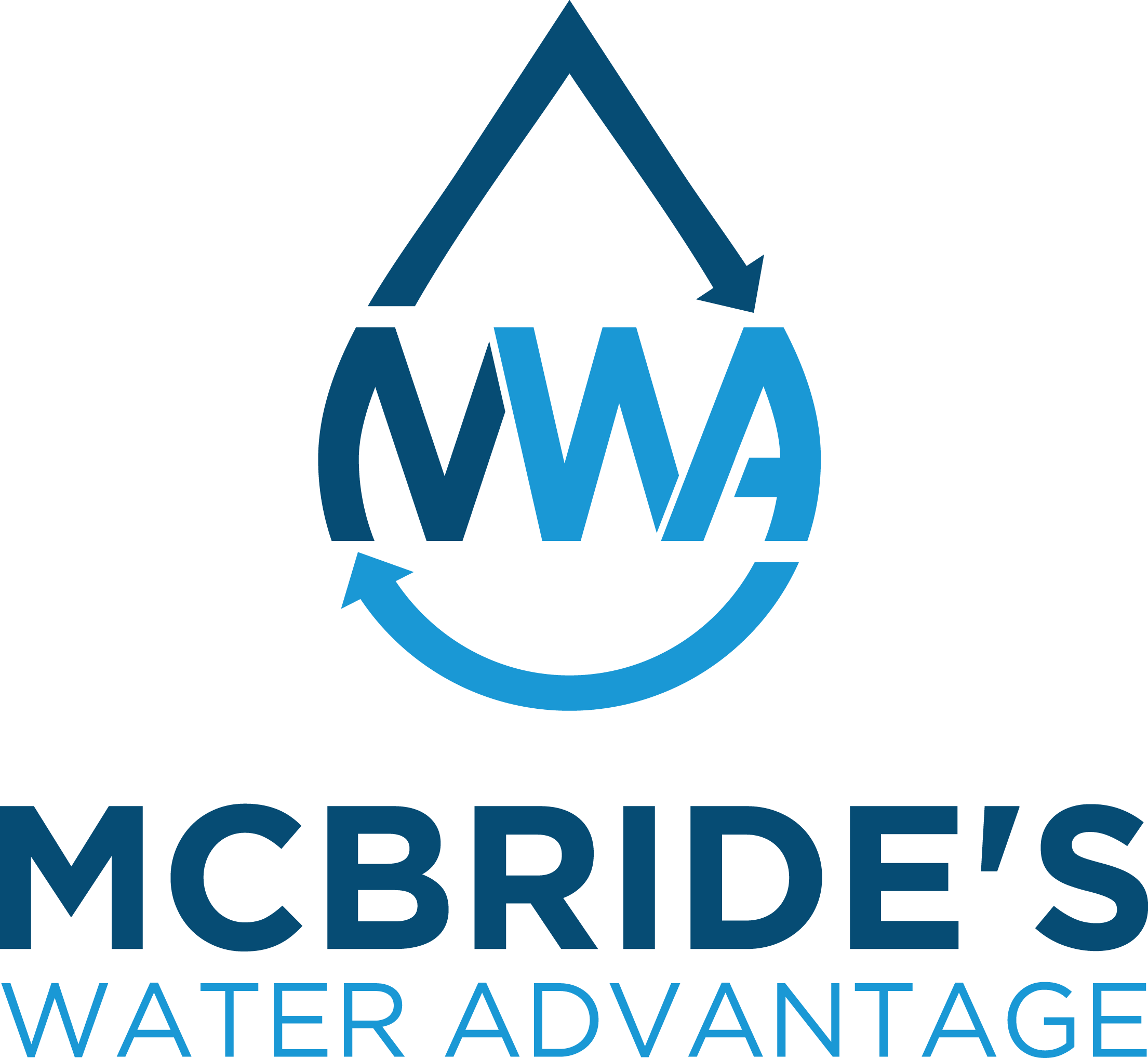Recently a customer asked Bill McBride about the differences between GAC (Granulated Activated Carbon) radon systems and Aeration (Bubbler) systems. Below is his reply.
Granulated Activated Carbon radon in water systems retain the radon in the tank and can eventually give off gamma radiation which behaves very similarly to X-rays. This creates a liability issue for us at McBride’s Water Advantage, in that it can expose our customers and our employees to an area around the GAC tank similar to receiving an X-ray every time they enter the four to ten foot circumference, above the tank, below the tank or around the tank. Both systems, Aeration and GAC can result in bacterial contamination, the aeration systems can be cleaned annually with no hazard to the home owners or our technicians. If bacteria is allowed to obtain a foothold in the Granular Activated Carbon tank it will likely inhibit radon adsorption onto the GAC and must be disposed of. Even if bacteria does not achieve a foothold in the GAC system, it will need to be re-bedded periodically when it achieves capacity at a cost of $350. to $600, depending on amount of radon and water volume. Testing is required annually at an additional cost to the homeowner. It is at this point that the exposure is the greatest and it is at this point that when a technician must actually remove the radon filled GAC tank from the basement sometimes even hugging the tank to physically remove it from the home or business. Upon removal we must send the spent media to a hazardous landfill, another added expense to the home owner.
It is because of the above text that it is our company policy that McBride’s Water Advantage will not install GAC when treating for radon in water. Quite honestly, GAC systems are more profitable and far easier to install than aeration systems and they are still allowed. Unfortunately, they are also initially less expensive making them somewhat more attractive to home owners whom are making a price only based decision.
It is true that Aeration systems are more expensive, however they are far safer for everyone involved. They simply aerate the radon out of the water with a violent bubbling action and safely mitigate it out of the water and out of the home where it blows away harmlessly with the wind. Aeration systems require annual maintenance and cleaning but should last for many years. They, in most cases can also increase home water pressure.
Bill McBride
President, McBride’s Water Advantage, llc
McBrides Water Advantage Certifications include, Radon in air and water measurement providers, licensed New Hampshire Pump Installers, Licensed Public water system operators, We provide superior water purification equipment with professional installation.
Contact us at the office at (p) 603-736-4470, (f) 603-736-4474 or
